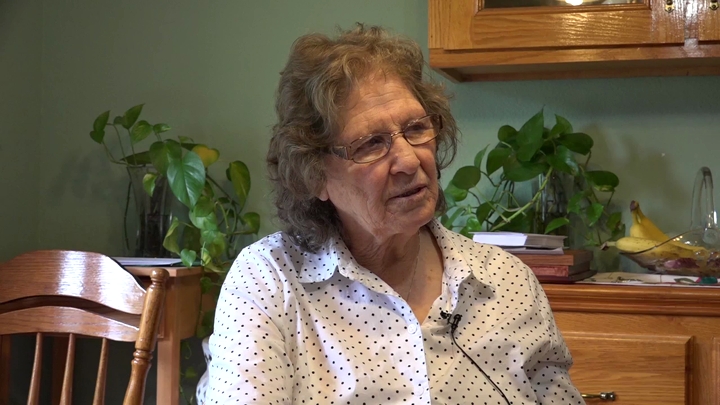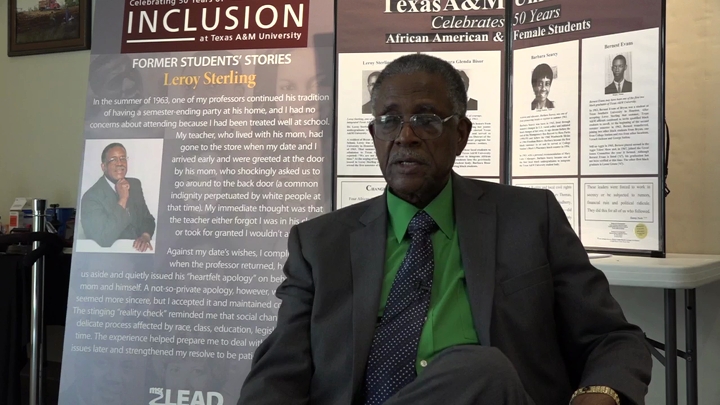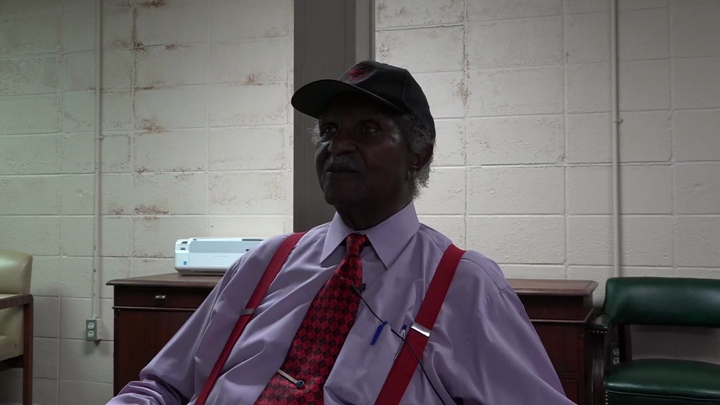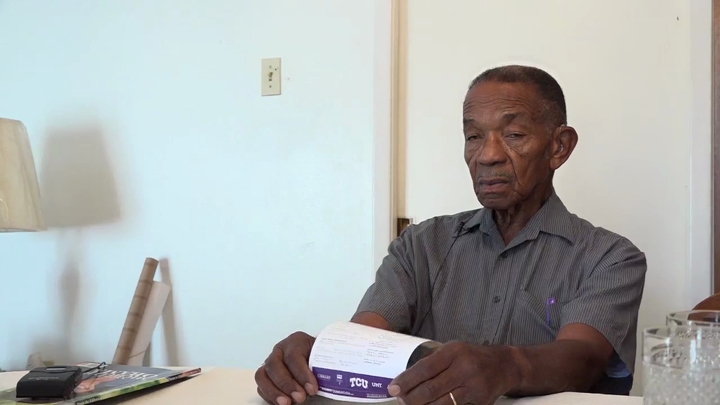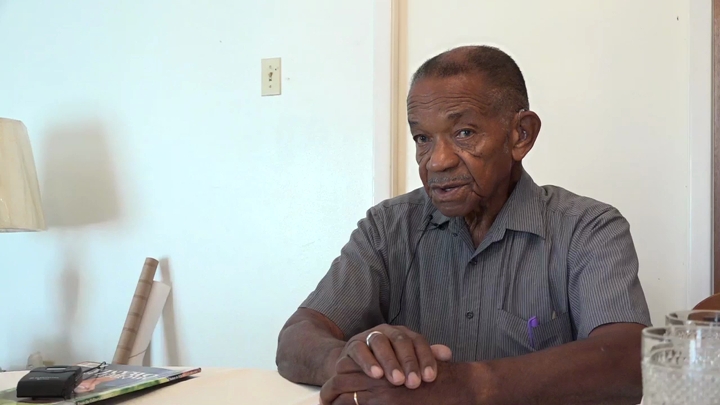Johnson / Jobs in the Military
sign up or sign in to add/edit transcript
Interviewer: So, you were part of the Army? Johnson: Yes. I went Army. I didn’t like the Navy uniform. Interviewer: You got a chance to choose which service you went in to? Johnson: Yeah, I did. They gave me a choice. If I would sign up for three years, I would go regular Army which has some benefit. I could also choose my theater of operation and I didn’t want to go to the Pacific with all those islands. So, I chose quartermaster which was basically—black units were quartermaster or infantry. So, I chose quartermaster in Europe for my three years for signing up. Interviewer: I’m not too familiar with what quartermaster means. Can you explain what that is? Johnson: Quartermaster is the hauling the food, the oil, the supplies. It was one of the menial units. Hauling the food, supplies, equipment, taking care of equipment. Whereas infantry is what they call the foot-soldiers that did the marching and basically the front fighting. Interviewer: In the Army, those were the only two you were allowed to sign up for was quartermaster or infantry? Johnson: Basically, yeah. Anything where it was menial, supposedly didn’t take much brains. Interviewer: Did you ever get an opportunity for promotion? Johnson: Yeah and that’s one reason why I didn’t. I took what they called a field test for a commission and I took—I could take it three times and I did. One hundred and seventy, I think, was the cut-off and in sequence, three times with six or eight months in between, I came up with sixty-seven, sixty-eight, sixty-nine according to my company, the unit that I was in. Of course, I didn’t believe that because I think that’s mathematically impossible to make a sequence of scores like that. That’s when I made the decision to throw my time and come on back and get into something else. I just couldn’t see how I could spend my future fighting for something I deserved if I passed. The officers who gave it, each time, said it looked good. Couldn’t give me an official evaluation of it, but he said it looked good each time. Something happened there that was not for me. Interviewer: So, they probably manipulated your scores, so you wouldn’t get promoted? Johnson: Yeah. Yeah. Mmm-hmm. I’m sure that it was the case. Interviewer: So, you only spent two years in the Armed Services? Johnson: Three years, really. I got credit for three years. Interviewer: You got three years credit.
| Interview | Interview with James E. Johnson |
| Subjects | Work › Discrimination at Work › Discrimination at Work: Promotions and Seniority |
| Discrimination or Segregation | |
| Discrimination or Segregation › Discrimination or Segregation at Work | |
| Historic Periods › Jim Crow Period | |
| Historic Periods › 1946-1950 | |
| Military › World War II | |
| Military › Discrimination in Military | |
| Military › Military Bases and Posts | |
| Tags | United States Army |
| sign up or sign in to add/edit tags | |
| Interview date | 2015-07-21 |
| Interview source | CRBB Summer 2015 |
| Interviewees | Johnson, James E. |
| Interviewers | Acuña-Gurrola, Moisés |
| Bynum, Katherine | |
| Duration | 00:04:11 |
| Citation | "Jobs in the Military ," from James E. Johnson oral history interview with Moisés Acuña-Gurrola and Katherine Bynum, July 21, 2015, Prairie View, TX , Civil Rights in Black and Brown Interview Database, https://crbb.tcu.edu/clips/706/jobs-within-the-military, accessed March 04, 2026 |


